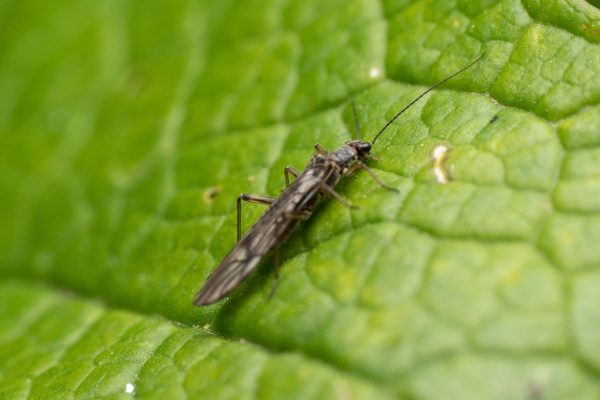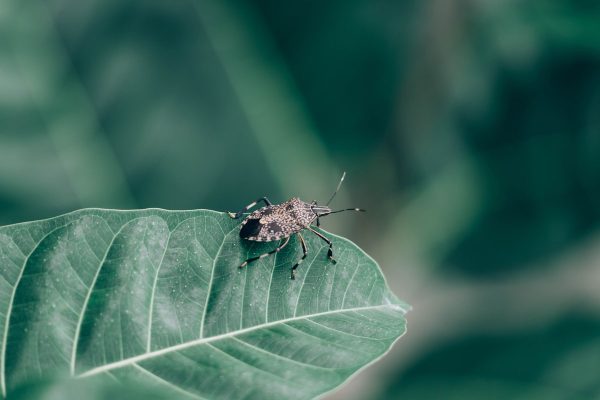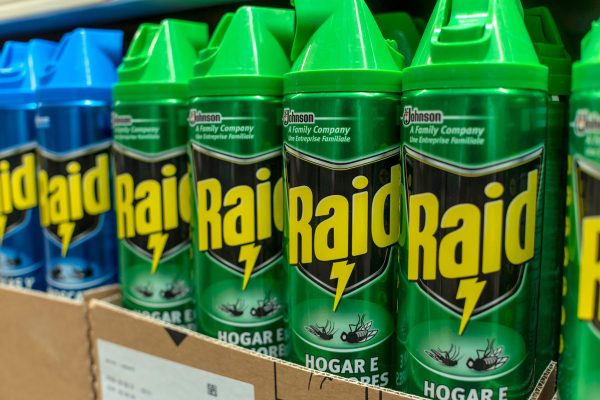Fruit flies can be irritating when they fly around homes. It is more of a nuisance when they perch on ripened fruits and veggies in the home. If you're looking for how to get rid of fruit flies in your home, we have consulted experts and done proper research to give you all the information you need to know.
Fruit flies have a strong olfactory system, and because of that, they are attracted to the smell of vinegar. Fruit flies are one of the insects that can multiply fast. It is always good to get rid of them as soon as you notice a few of them.
To learn more about fruit flies and how they operate, keep reading to get the detailed information we have gathered for you.
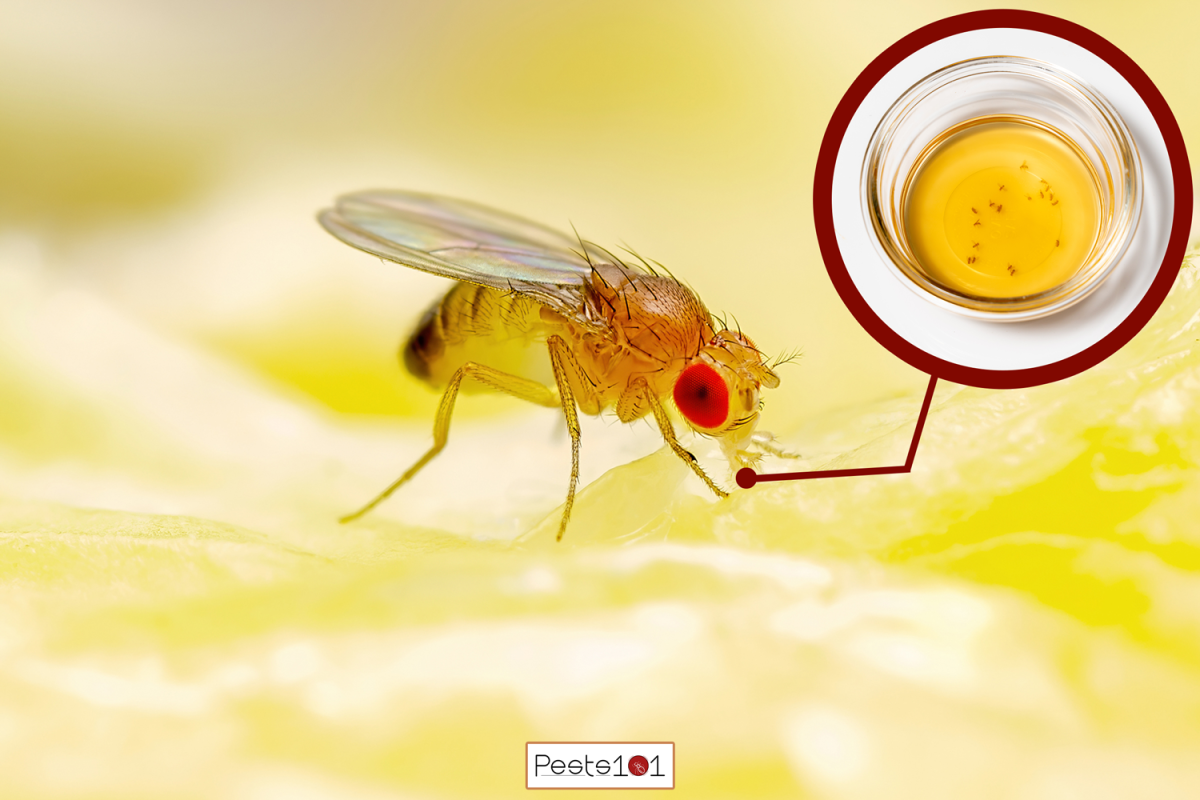
Fruit Flies—Life Cycle and Habits
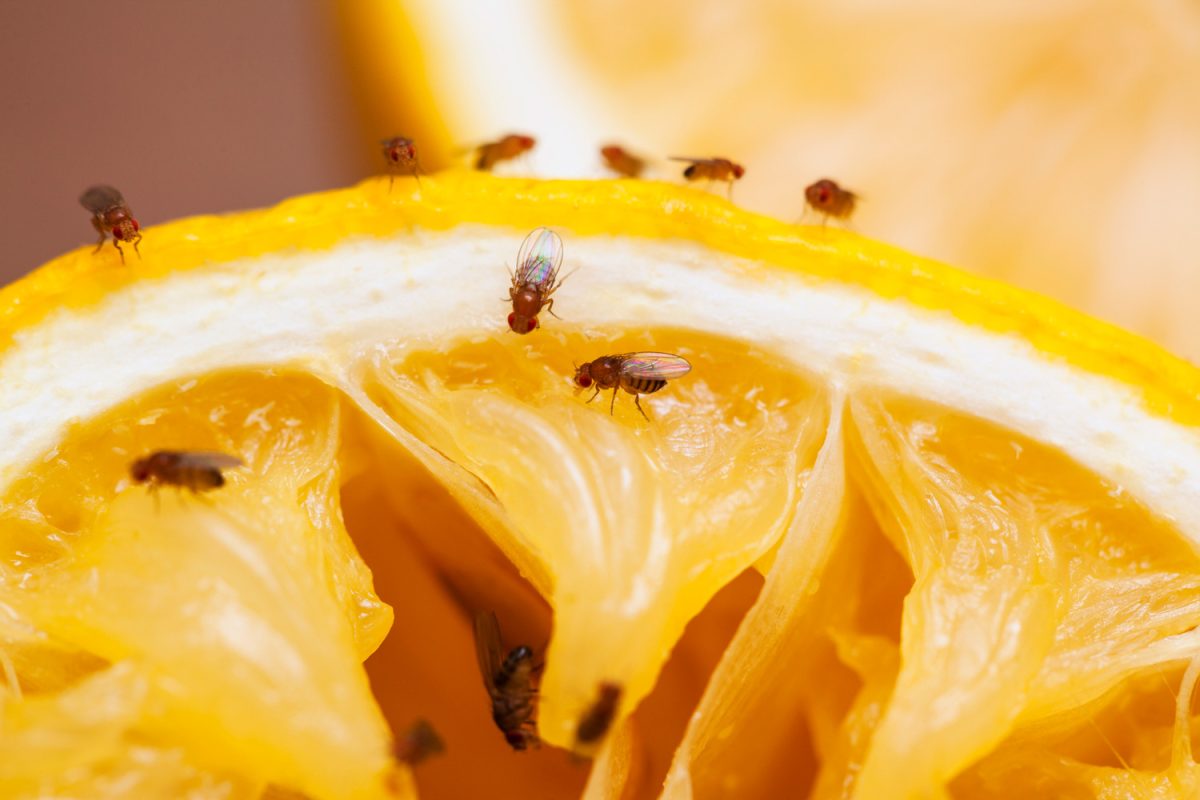
Fruit flies are commonly seen in restaurants, grocery stores, homes, and other places where fruits are rotten or fermented. Adults fruit flies have eyes that are typically crimson and are about 1/8-inch long.
Tan color is what makes up the body's front while black makes up the back. Fruit flies produce eggs close to the surface of foods that are fermenting or other moist organic materials.
The small larvae emerge and continue to eat close to the surface of the fermenting mass. Because the larvae eat on the surface, it is possible to cut away any ripe or damaged areas of fruits and vegetables without having to throw the rest away for fear of harboring any developing larvae.
Fruit flies have huge reproductive potential; given the chance, they will lay roughly 500 eggs. It takes only about a week for fruit flies to develop from egg to adult. In the kitchen, ripe fruits and vegetables are particularly attractive to fruit flies.
They will, however, also breed in sewers, garbage disposals, empty bottles and cans, trash cans, mops, and cleaning rags. A moist sheet of fermenting material is all that is required for the development.
Overripe fruits that have already been affected and brought inside the house can be the source of infestations. Inadequately screened windows and doors allow the adults to fly in from the outside as well.
Do Fruit Flies Like Vinegar?
Vinegar is the end product of fruits that are fermenting. Fruit Flies have a very odd olfactory system and that is why they like vinegar because they like the odor it carries. These creatures feed from, lay their eggs on and breed on fermented vegetables and fruits.
To draw fruit flies, white vinegar and basic fruit juice are not totally effective. Fruit flies are drawn to, feed on, and deposit their eggs on decaying, fermenting fruits and vegetables, thus it's essential to have something that has gone through the fermentation process around.
If you just have fruit juice on hand, you can add some chopped-up pieces of rotting banana to the mixture to entice the fruit flies into the trap with vinegar.
How Do You Get Rid of Fruit Flies With Vinegar?
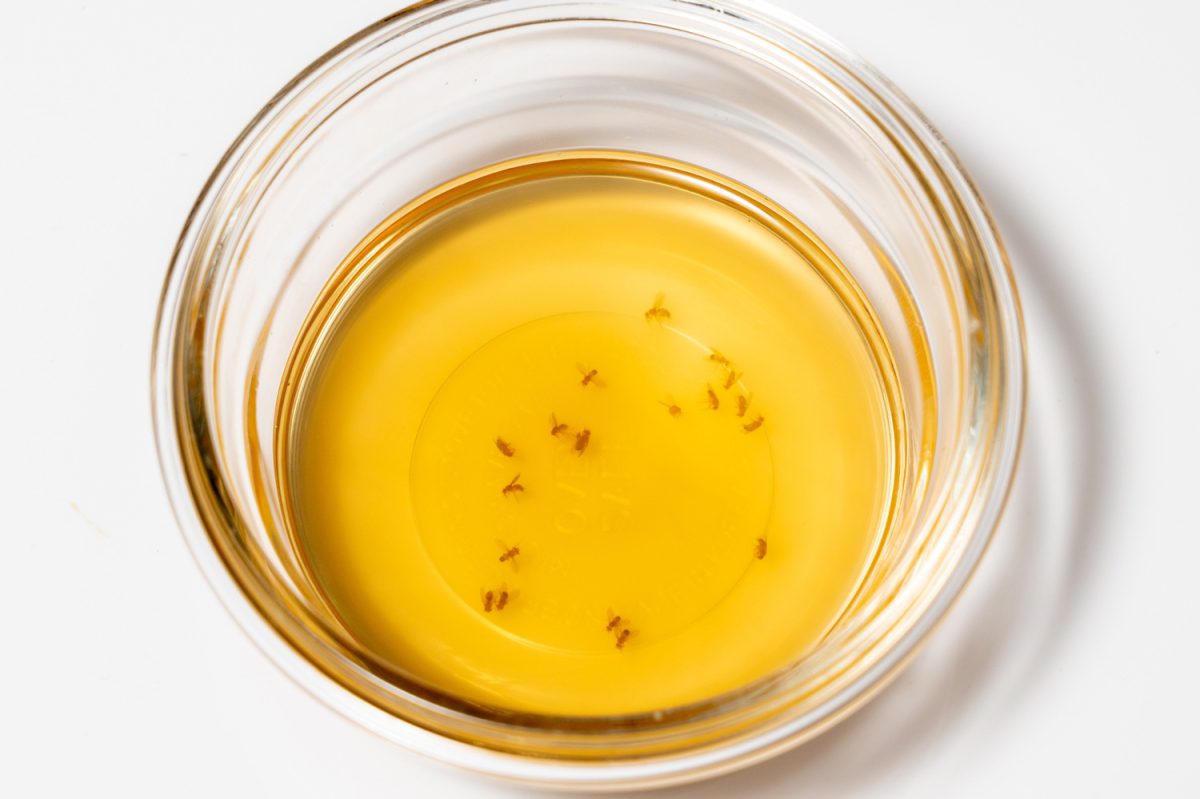
A natural, functional kitchen product is vinegar. In addition to being used in cooking, it is a cheap ingredient in many do-it-yourself cleaning projects.
In addition, vinegar does not release any harsh or hazardous fumes, unlike many commercial products. It merely gives out a salad-like odor. Here's how to use it in getting rid of fruit flies.
Method One
Make use of apple cider vinegar. Pour apple cider vinegar into a glass or bowl, cover it with plastic wrap, secure at the edges with a rubber band, and puncture the top with tiny holes.
The fruit flies will be drawn to the vinegar, and once behind the plastic wrap barrier, they won't be able to flee.
Method Two
Combine dish soap and vinegar in a bowl. Flies are drawn to the stale sweetness of the apple cider vinegar, and the dish soap serves to lower the surface tension of the liquid, enabling the flies to immediately dive into the solution upon exploring it and becoming trapped.
Method Three
Flush your drains with boiling water or white vinegar. This is an easy approach to eliminating fruit flies right away.
Shower drains, sink drains, garbage disposals, toilets, and other damp, concealed locations are popular residences for fruit flies. Pouring boiling white vinegar into those places is a fantastic technique to get rid of them.
If you don't have any vinegar on hand, you can alternatively use overripe fruit that has been placed in an open plastic bag to catch fruit flies. When the fruit flies have gathered on it, carefully close the bag to trap them inside.
What Kills Fruit Flies Instantly?
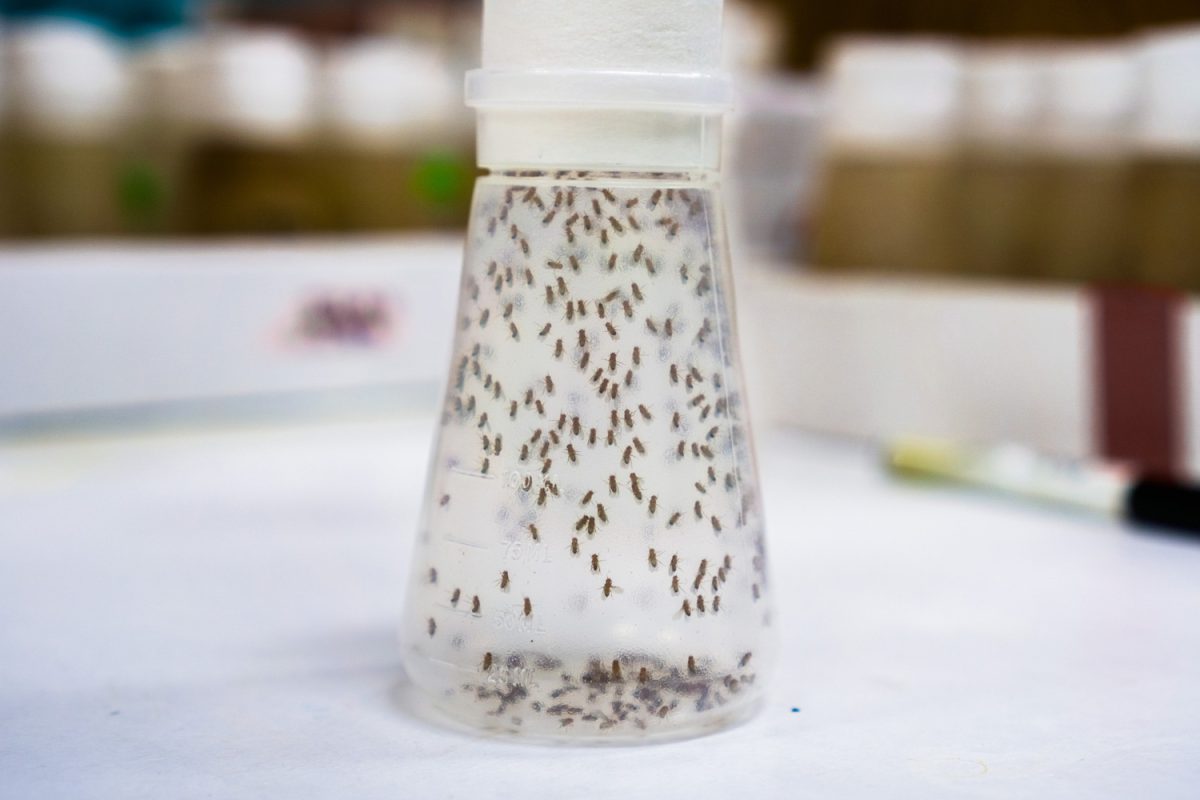
Nobody enjoys fruit flies buzzing around them, and they contaminate your meal with harmful bacteria. One of the quickest ways to get rid of fruit flies is to hire a professional pest control specialist.
Nevertheless, using chemicals at your house or business could come with just as many risks as advantages unless you are a skilled specialist. In comparison to the chemicals employed by professional pest control experts, the DIY method could be slower.
Old-fashioned flypaper sticky traps are still offered at the majority of grocery and home supply stores if you don't like DIY projects or just want the most basic fruit fly trap you can find. These typically come in pairs of sheets that are adhered together.
Check out this Eco defense fruit fly killer.
How Long Until Fruit Flies Go Away?
An infestation of fruit flies won't just disappear on its own; it'll probably only become worse. If you don't stop the source, you'll keep getting new fruit flies every day even if the mature ones die. If you don't take action, they will continue to multiply on overlooked food scraps, spills, and crumbs.
How Do Fruit Flies Appear Out of Nowhere?
Fruit flies frequently seem to materialize overnight. It seemed so to so many people who thought fruit flies are a natural phenomenon and were created from rotting flesh or fruit.
Because they have a good sense of smell, fruit flies are sly little insects that can smell rotting fruit from great distances. Once the fruit on your kitchen counter begins to go just past ripe, they don't originate from the inside of the fruit but rather from the outside.
Since fruit flies are so tiny, they can fit through even the smallest gaps surrounding windows or doors and can even fly through window screens. Fruit begins to ferment as it becomes overripe or begins to spoil, creating alcohol that draws fruit flies.
They continue to eat the fermenting fruit, laying hundreds of eggs that hatch into larvae in only a few hours while they do so. Females can lay 50 eggs daily.
Where Do Fruit Flies Lay Eggs In The House?
Adult fruit flies typically lay their eggs are fruits and vegetables. They must be overripe or decaying fruits or vegetables to do this. They won't try to burrow into anything that isn't yet fermenting.
The adult fruit fly enters the fruit or vegetable through the skin and lays its eggs if the conditions are ideal. However, fruit flies can also lay their eggs in other types of products besides overripe food. They hunt for little collections of sludge that they can use as egg-laying sites.
The easiest way to describe this sludge is as a goopy mixture of fluids and debris found at the bottom of trash cans, inside of garbage disposals, inside of piping, and in the seams of appliances. No matter how little the sludge is, fruit flies will still lay their eggs on them.
Additionally, fruit flies can also lay their eggs in garbage disposals, damp mops, sponges, empty bottles, and even sink drains.
How Do You Find a Fruit Fly Nest?
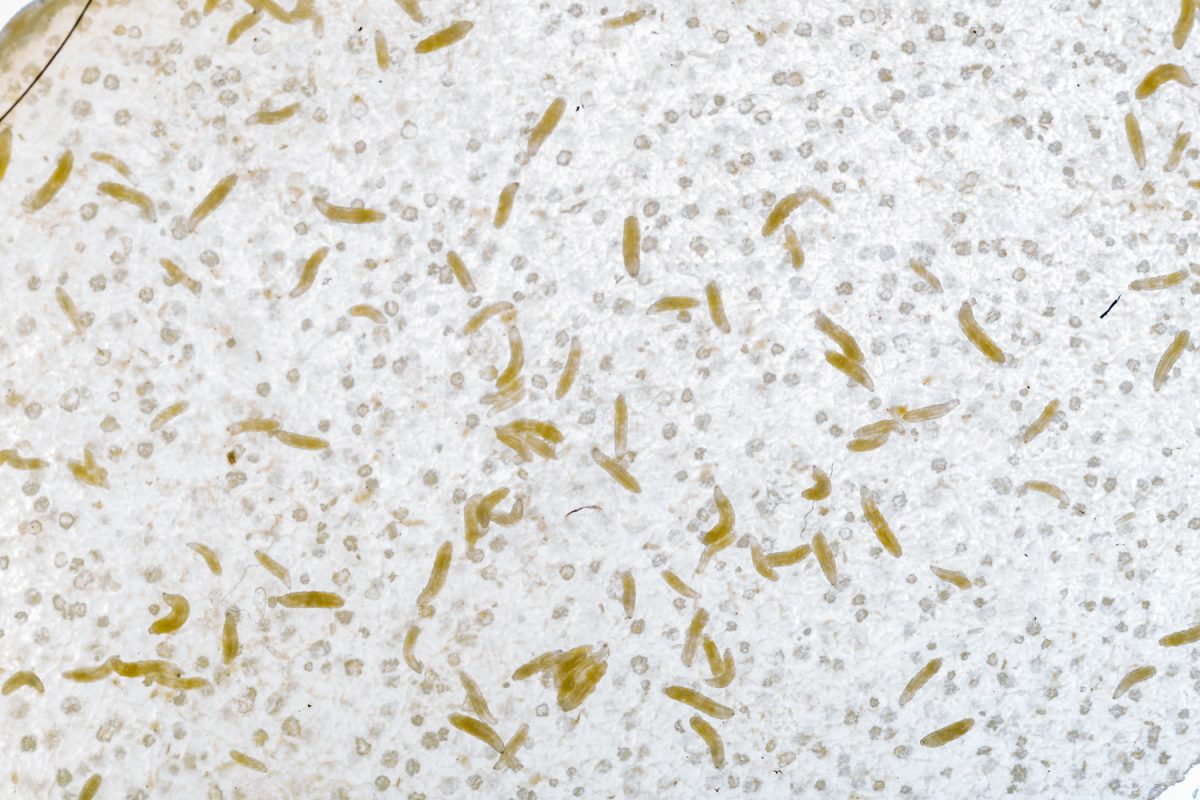
To get rid of fruit flies completely, you would have to find the nest. Here are different ways to do that.
Method 1
Look for fruits or vegetables that are too soft or that are rotting in fruit bowls and vegetable storage containers. As soon as the fruit starts to decay, throw it away. Fresh fruit from the garden or a farmers' market may occasionally already be contaminated with fruit fly larvae.
Additionally, search for spills of food or drink that may have gotten behind an appliance or into another hidden space and gone unnoticed. Eliminate any rotting produce from your yard that may be spawning fruit flies that can enter your home.
Method 2
Beer, wine, cider, juice, and vinegar all have a yeasty, fermenting smell that makes them all appealing to fruit flies. Look for open containers, spills that have gone unnoticed, or empty bottles that still have residue.
Method 3
Recyclables and trash can containers should be cleaned out frequently to prevent semi-liquid sludge from building up at the bottom. Check the area behind the plastic trash can liners.
Before putting food and drink containers in recycling bins, rinse them out. Even the leftovers in a ketchup bottle, pickle jar, or soft drink cans in a recycle bin might support the growth of fruit flies.
In Closing
Fruit flies are creatures that are attracted to the odor of fermented foods. You can use vinegar to get rid of them or if you're not a fan of DIY methods, get a professional pest expert.
Before you go, check out these posts:


